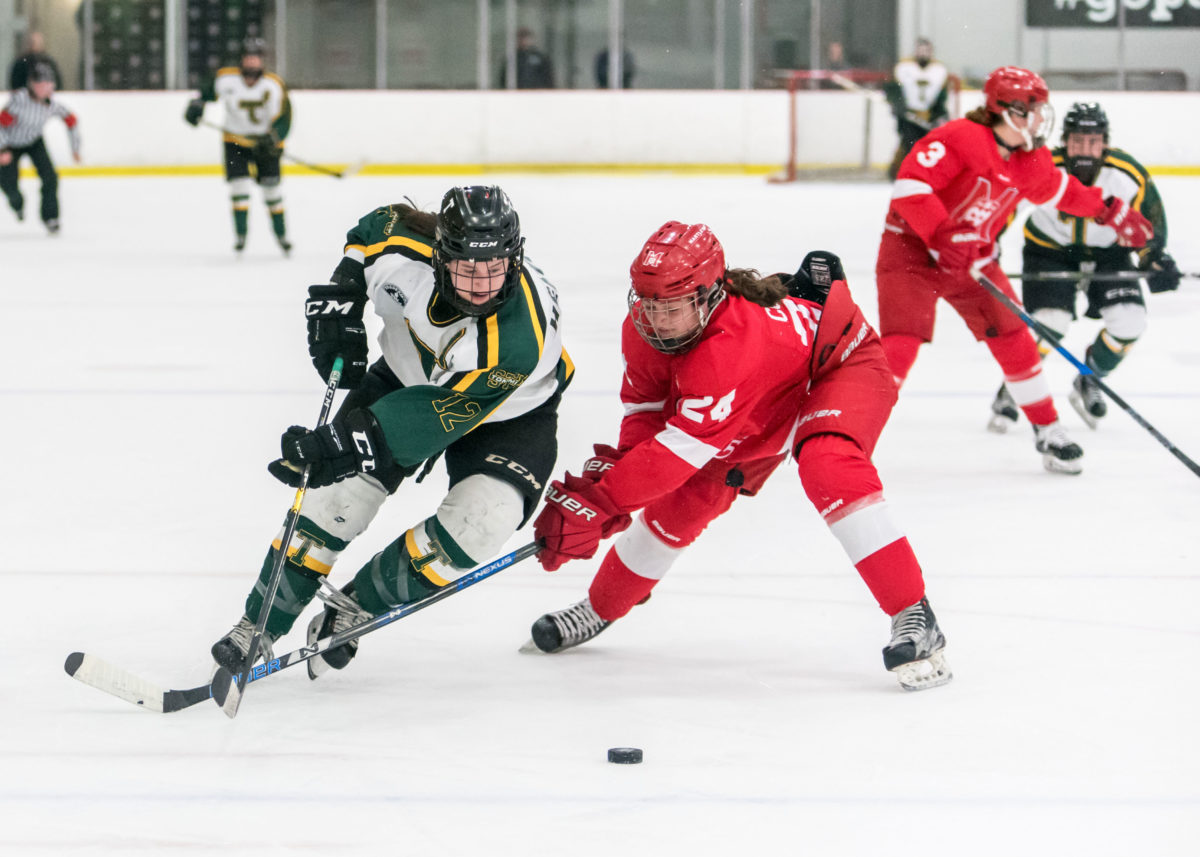

When it comes to mental health, I have felt my highest highs and lowest lows while playing hockey.
I’ve won championships, made best friends, travelled and even moved away from home — all thanks to my love of hockey. I used to take stats of my brother’s games and watch the Winnipeg Jets. I even put on a hockey game when I can’t sleep and just listen to the audio.
But hockey has also been the starting point for a large inner mental struggle that always seems to creep back in just when I think I’ve overcome it.
In my third year of playing hockey, I started to feel a ton of external pressure and I’d get nervous if I knew certain people came to watch and felt as if I couldn’t play knowing they were in the stands.
It grew with each passing year until eventually, I didn’t need someone else to tell me I wasn’t living up to my potential. I told myself.
I remember the first time I read the book Open, written by former professional tennis player Andre Agassi.
And wow. Finally someone I can relate to; someone who had the same inner demons as me.
It didn’t strike me until later just how sad it was, relating so strongly to someone who wrote an entire book about hating the sport they played.
When I was younger, I’d show my frustration by slamming my stick or tilting my head back. As I got older, tears would fill my eyes every game, although hidden behind the metal cage of my helmet.
There’s a photo of me at 17 years old after a game when I had just finished crying for almost half of it.
The tournament awarded me player of the game. Irony at its finest.
Now, when I feel myself spiralling, I feel numb. Empty. The feeling is indescribable.
It’s a lot easier for me to stop it or slow it down, but that’s with years of breakdowns and thinking “maybe I should just quit.”
This year I suffered a serious injury, and the guilt I felt of not being able to practice was overwhelming.
It felt like a full-on identity crisis.
Your sport becomes such a huge part of who you are. Coming back after months of not playing and with lingering effects from the injury, it’s hard to cope with my game not being in the same place that it was before.
But my mental health journey in relation to hockey has taught me a few things.
Firstly, mental health is forever and you have to continuously work on it. Sometimes I’m harder on myself when I’m doing well because it feels like I can see the potential, but I’m frustrated that it’s not consistent.
“Why can’t I play like that every game?”
Secondly, hockey is just a game. Even though mental health problems may manifest themselves in sports, we have to remember that sport is more than just that.
Lastly, I went to a sports psychologist for the first time this year, and I can’t even begin to describe how great it has been. You can’t use your physical skills if you’re not mentally there. Having a good support system goes a long way.
Everyone deals with things differently and playing on such a high-level team has shown me that everyone has their own struggles and insecurities. Once you start talking about it, it becomes relieving and less of a big deal.
So, what do you do to cope?
You live with it every day. Sometimes you forget it’s there. You try to put yourself in the best situations possible so you’re less likely to spiral.
Having a mental health struggle doesn’t mean you have to sit out, play at a lower level or never have fun – it’s quite the opposite. Going to the rink often makes me feel better.
It’s been a long road, and that’s not to say I won’t have more struggles. Every day I get better and build skills to handle the mental side of the game, so I wouldn’t trade hockey for the world.
